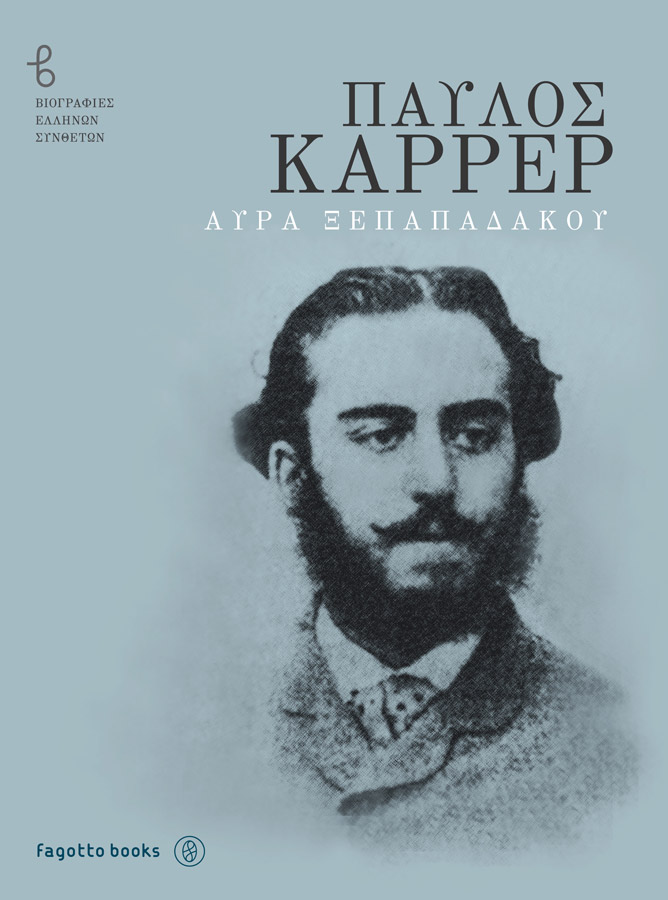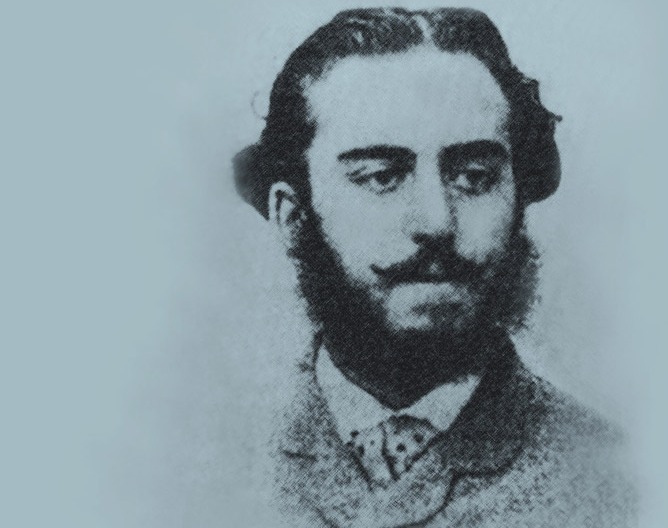Article for our book “Pavlos Carrer” published in the “European Journal of Theatre and Performance”


European Journal for Theatre and Performance
Issue 1 • January 2019: Spectres of Europe: European theatre
between Communitarianism and Cosmopolitanism.
(https://journal.eastap.com/eastap-issue-1/)
Xepapadakou, Avra, Pavlos Carrer
Ξεπαπαδάκου, Αύρα, Παύλος Καρρέρ, Σειρά: Βιογραφίες Ελλήνων Μουσουργών (Αθήνα: Fagotto Books, 2013), 504 σ.
[Xepapadakou, Avra, Pavlos Carrer, Series: Biographies of Greek Composers, Athens: Fagotto Books, 2013), pp. 504] – ISBN: 9789606685521
(Prize for the Best Scholarly Book in the Performing Arts 2016 – Union of Greek Theatre and Music Critics)
Eleni Papalexiou
University of the Peloponnese
Avra Xepapadakou holds a doctorate in Theatre and Musicology, specializing in the history of opera, with significant research, teaching and writing experience. She has extensively researched the rather unknown field of the reception and dissemination of opera and musical theatre in Greece and Southeastern Europe, and has published (in Greek and English) papers on 19th-century cultural life, based on an exhaustive study of the sources and on primary archival research. She is a multitalented performing arts scholar who navigates comfortably through the length and width of theatrical science, from Verdi to Castellucci. More specifically, she is the documentation advisor of the archive of Romeo Castellucci and Socìetas Raffaello Sanzio, and has widely contributed to the creation, documentation and management of one of the most important archives of contemporary European theatre.
The reason we chose to discuss the monograph on Carrer is that this work has recently received the prestigious “Karolos Koun” prize from the Union of Theatre and Music Critics, as the best scholarly book in the field of the performing arts. But this is not the only reason, as in this work, the writer, who has a solid theatrical background, goes well beyond the narrow boundaries of a biography, proposing a new approach in performing arts studies that is performance-centered and event-centered, focusing on the wider European cultural landscape, within which the musical and theatrical activity takes place.
Applying a model of analysis based on histoires croisées, Avra Xepapadakou directly links the life and art of Pavlos Carrer, a major Greek opera creator of the 19 century, to the European cultural reality of his time.
Through intersecting geographical coordinates, Avra Xepapadakou has composed a dazzling fresco that highlights not only the composer, but also his historical surroundings in the Ionian Islands, Athens and Italy. But the most important finding of the book is the unexpected connection transcending states, frontiers and markets: the 19 -century opera network of lyrical works, artists, scores, companies, agencies, businesses and opera houses. In order to compile this mosaic of heterogeneous fragments, the author carried out eight years of field research in countless archives and libraries in Milan, Corfu, Zakynthos, Hermoupolis (on the island of Syros), Patras, Athens and Alexandria, Egypt.
This book is of exceptional importance, as it illuminates unknown aspects of musical theatre and opera in Greece, largely unknown not only to Greeks but also to European audiences, who may have the impression that ‒due to the Ottoman occupation‒ these genres did not prosper in the Greek lands. In addition, the reader comes to understand how opera contributed to attracting audiences to the theatres, since until that time modern prose drama had just begun to take its first steps. Indeed, opera was the first official professional theatre in the ex-Ottoman wider region of southeastern Europe and the eastern Mediterranean, and thus the first to introduce the audience to the modern performing arts and the pleasures of the stage, thereby contributing both to the revival of
the ancient Greek tragedy, and to the establishment of theatrical and musical institutions in the early 20th century.
Paolo Carrer (or Pavlos Carrer/Karrer), an offspring of the prosperous Ionian civilization that never experienced Ottoman rule, lived in Milan, the European capital of 19 century opera. There he presented three Italian operas, two of which met with remarkable success. Avra Xepapadakou’s in situ research in Italy proved that “giovane maestro Paolo Carrer” was not just one of the many foreign musicians struggling for recognition and fame in Milan, but a very promising new name, in which many of the major players in the opera market invested, at a time when Verdi’s empire and the explosive political reality allowed very few composers to earn distinction. I was surprised to read in the book that Carrer’s opera Isabella d’Aspeno was one of the main prototypes of the celebrated Un ballo in maschera by Verdi.
A second important feature connecting Pavlos Carrer with European opera and music theatre was his conscious decision to return to Greece, with the aim of creating a national music and a national opera. This was happening in other Eastern European countries, but Carrer’s initiative was slightly earlier, in the late 1850s. Pavlos Carrer was in fact the first Greek composer who produced a full collection of vocal works with national themes, Greek-language librettos and lyrics and melodies inspired by the folk tradition, as well as by the newest urban-cultural musical creations of Greece. The book mentions several examples of his work which today are considered by the general public as traditional songs, when in reality they are opera arias, but so ingeniously composed that they cannot easily be distinguished from the body of original traditional or folk Greek music.
As outlined in the pages of the book, Carrer’s case is very representative, and for yet another reason: his activity extends over a wide range of Greek cultural life of his time. Composer, orchestra conductor, impresario, music teacher, director and dramaturgist, Carrer was a homo universalis of the multifaceted 19 century; through his life many unknown aspects of his era unfold.
In the first four chapters of the book, the artistic life of the composer is presented in a delightfully lively and charming narrative, with emphasis on the reception of his performances, while the second part offers an analysis of all his opera works, and attempts an overall evaluation of his creative trajectory, integrated within its European historical and cultural contexts. Finally, an exemplary list of works and theatrical productions is included. Although the book quotes numerous primary sources, and even the slightest information is thoroughly documented, it reads more like an adventure novel of the 19century. The rich illustrations with photos and sketches of the era are particularly useful, while the explanatory captions are a parallel text that can be read with equally great interest.
In her efforts to bring order to a material of great size and variety, Avra Xepapadakou demonstrates her unique ability of combining academic acumen with literary talent and theatricality, thus offering us a comprehensive picture of the music-theatrical life and the opera culture of the time in the Ionian Islands, Italy’s mezzo ottocento, and the Greek urban centers of the fin de siècle. The author seems involved herself in the operatic network described above, as she takes us on a journey, following the tours of Carrer and his work in Italy, France, the Aegean Archipelago, the Danube Delta, the Black Sea, the Bosporus, the Eastern Mediterranean and in the lower reaches of the Nile. Her book Pavlos Carrer is a reference work for the history of opera in Greece, and it would be
worthy of translation into other languages, such as English and French, in order to become accessible to the non-Greek academic community studying the performing arts, as well as to a wider audience, as a fascinating read. In conclusion, for those interested in delving into the social history and reception of the performing arts in Southeastern Europe of the 19 century and who do not have access to the Greek language, we would like to note here that Avra Xepapadakou has recently published, in cooperation with Alexandros Charkiolakis, a second outstanding monograph in English, entitled Interspersed with Musical Entertainment. Music in Greek Salons of the Nineteenth Century (Athens: Hellenic Music Center, 2017)
